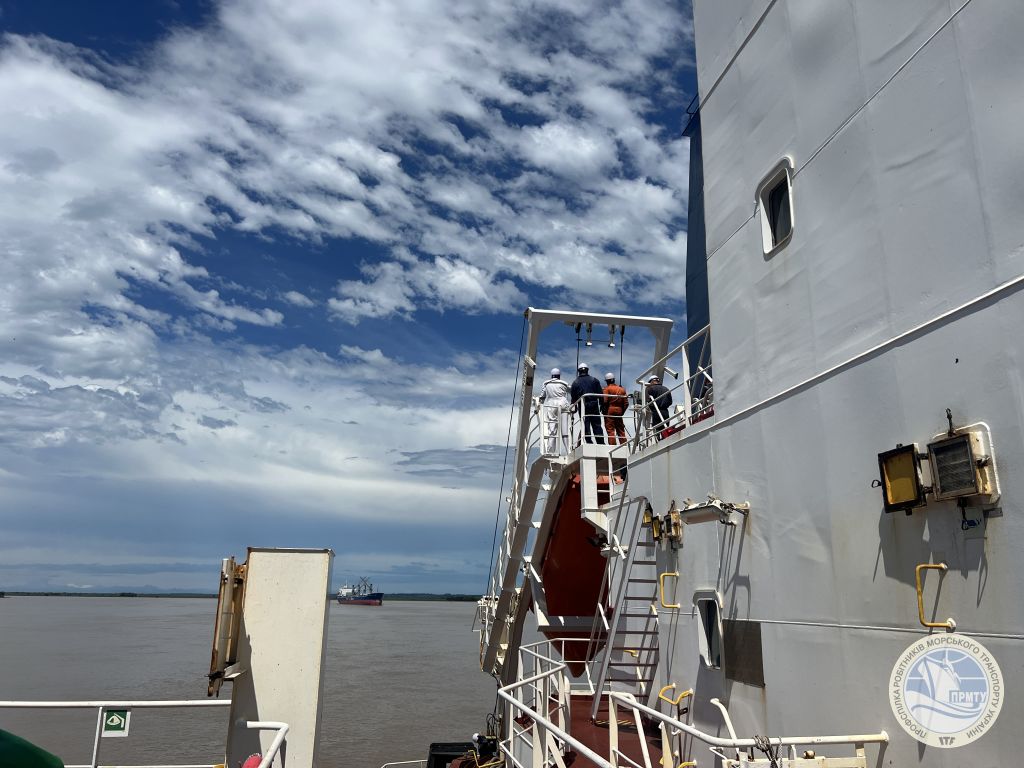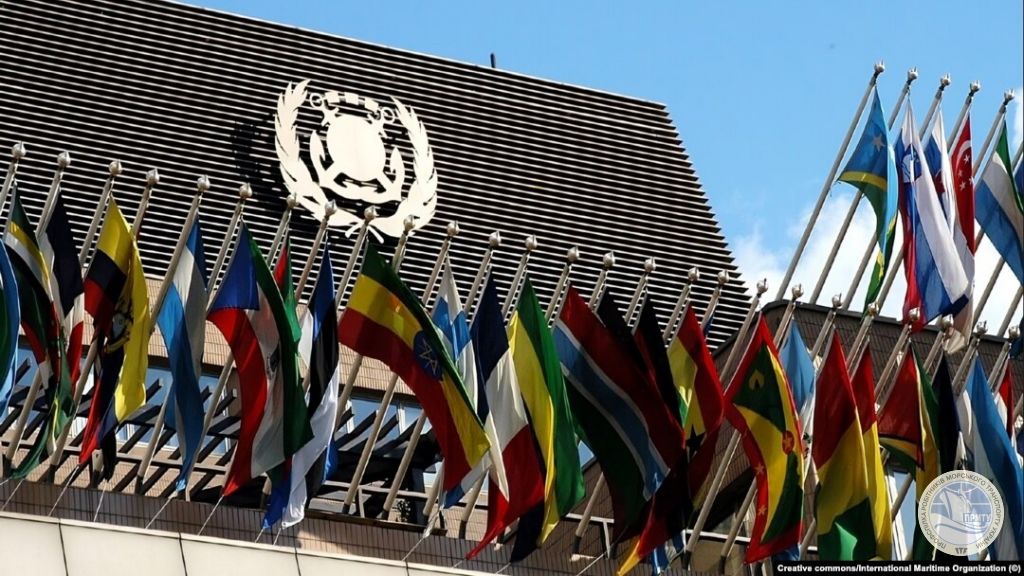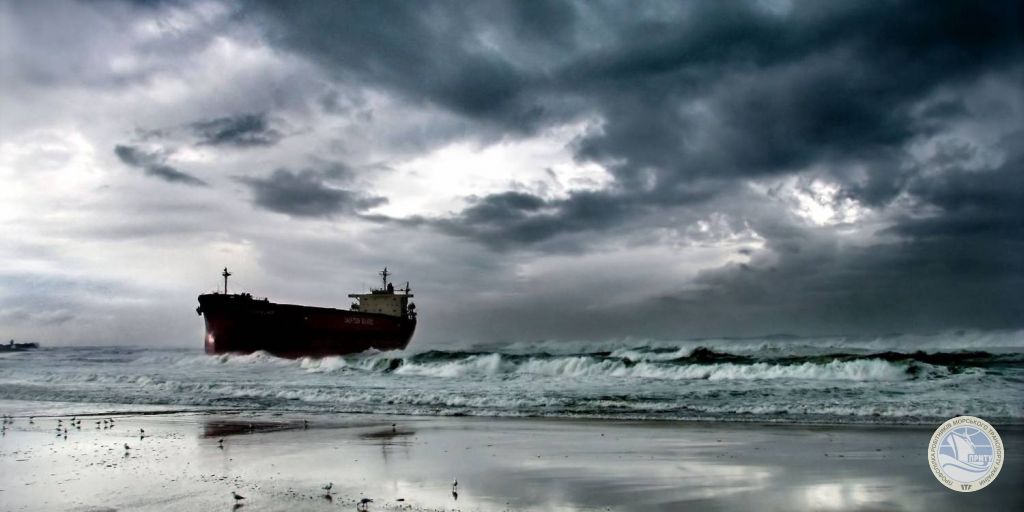In continuation of the threats, what is the Russian "shadow fleet" from a practical point of view and how can such a tanker be identified?In recent years, Ukrainians have become accustomed to bad news from the sea, which Russia has turned into a source of threat. But Ukraine is a maritime state, and our sailors are the elite of world shipping. Oleg Grygoriuk, Hed of MTWTU, told UNIAN how they live, what problems they solve and how the government hinders them.
Oleg Grygoriuk, Head of the Marine Transport Workers' Trade Union of Ukraine and Vice President of the International Federation of Shipmasters' Associations, explained the situation with seafarers going abroad and spoke about corruption along the way, the fate of Ukrainian shipping and the elitism of Ukrainian seafarers. He also talked about why Ukraine, as the leading country in terms of the number of seafarers, still does not have a "seafarers' bill of rights" and why this could be a black mark for the government. Pirates, Houthis, blockades, the 'grain corridor', the shadow fleet... Mr Hryhoryuk told UNIAN about all the most resonant issues.
The most resonant topic in recent weeks has been the threat from the Houthis in the Red Sea. Do you know anything about attacks on ships with Ukrainian citizens on board?
There was the case of the hijacking of the Galaxy Leader, which included three Ukrainian sailors. According to available information, the crew is still being held by the Houthis. Through the Ukrainian Embassy in the UK, we are in touch with the International Maritime Organization, which is dealing with this issue. Negotiations are ongoing.
I would like to note that in situations of hijacking, the practice is that the shipowner first sends a professional negotiator to resolve the issue of releasing the vessel and crew. Insurance companies and embassies provide consultants. Officially, states do not negotiate with terrorists. I should note that the more publicity there is, the more difficult it is to resolve such cases.
After the release, the sailors turn to their national trade unions for the help they need. We provide financial and psychological assistance. So far, these seafarers or their relatives have not contacted our union.
How significant is the threat of piracy and attacks on civilian vessels in the region to global trade, given that about 10% of oil supplies and 15% of total global trade pass through the Red Sea?
To begin with, I would clarify the term "piracy". According to the United Nations Convention on the Law of the Sea, piracy is robbery, detention or other unlawful act committed for private gain. The Houthis' attacks are organised and aimed at blockading Israel. This is not "piracy" but politically motivated terrorism.
They attack neutral vessels under a very dubious motive. For example, if they believe that one of the shareholders of the ship-owning company is an Israeli citizen or an ethnic Jew. But ship management is a very globalised process.
A vessel may have beneficial owners from several countries, be registered under the flag of another state, commercial and technical management will be carried out from a third country, and the vessel itself will have a multinational crew. How they choose their targets for attack is known only to them. Ultimately, it is not Israel that suffers from Houthi attacks, but absolutely all states in the world.
Now the largest shipping companies, such as MSC and Maersk, are forced to send ships around Africa. This means that the cost and time of cargo transportation will increase. This is always paid for by the end consumer - prices for imported goods and oil may rise slightly. This is reminiscent of the case of the container ship Ever Given, which got stuck in the Suez Canal in 2021. This caused losses, but did not paralyse global trade.
The Houthis have already attracted too much attention from the international community, which, as we know from the Somali experience, after the "concern" stage leads to a fundamental military solution to the problem.
And which regions of the world are the most dangerous today in terms of attacks by "classic" pirates? Your trade union reported on its website that 99 such cases were recorded in the first nine months of the year. Is this a lot or a little?
The more instability there is in the world and in a particular region, the more attacks occur. This year, instability has increased, and so has the number of attacks on ships. The most threatening maritime region is still East Africa, which borders the Red Sea. This high-risk area stretches from Somalia to the coast of Israel.
It also includes West Africa - the Gulf of Guinea and the coast of Nigeria. There are cases in Asia, in the Strait of Malacca and neighbouring regions. There, it is robbery, not terrorism. That is, classic "piracy".
What are the other threats to global trade? The Panama Canal is said to be drying up, and there are traffic jams in Suez...
The covid, which has not yet been overcome, had a negative impact. The confrontation between the United States and its allies with China has a major impact, creating instability in the world. For example, due to the trade wars between China and Australia, ships were blocked in ports for a long time. For seafarers, this is like imprisonment. The number of suicides increases if a ship is blocked in port for more than 6 months.
Another problem for shipping, which no one writes about, is the increase in the paperwork burden on ship crews, primarily on officers. This affects the dynamics of global shipping no less than pirates, as seafarers need to fill out dozens of reports and statements rather than performing their direct duties.
Often, seafarers perform this purely bureaucratic work at the expense of time when they should be resting. This leads to excessive fatigue and, as a result, to maritime accidents. We proposed to create the position of an administrative assistant to the captain who would take care of all the bureaucratic work, but shipowners did not understand.
As for the problems on the canals, particularly in Panama, I am not worried. This country lives off the Panama Canal. They will even fill it manually if necessary. The Suez Canal is now less congested than before. For Egypt, this canal is also a fundamental story. They will not abandon it. Global trade has a huge impact on all processes in the world, as 90% of goods are transported by sea. States and global organisations control the situation. Everything will be fine with the canals.
In continuation of the threats, what is the Russian "shadow fleet" from a practical point of view and how can such a tanker be identified?
These are not only oil tankers, but also bulk carriers carrying Ukrainian grain and metal stolen by the Russians. Russia has faced the fact that ships flying their flag have been blocked in Western ports. In particular, our fellow dockworkers from Europe and other countries informed us about all vessels carrying cargoes of Russian origin and refused to service them, showing solidarity with Ukrainian sailors and port workers. We also did this with our partners, including the Canadians.
To circumvent the dockers' blockade and sanctions, the aggressor country was forced to buy old ships on the secondary market and register them under shell companies and "convenient" flags. This is usually something insular and distant, with a dubious reputation - Cameroon, Togo, Palau and others where there is no global control.
These are so-called "subprime ships". That is, very old ships that are already on the verge of disrepair. Such vessels are under the conventional supervision of the Russian Maritime Register of Shipping or other recognised organisations that are not members of the International Association of Classification Societies. Similarly, insurance is provided either by Russian companies or by little-known companies from countries such as Iran, for example.
In the international arena, Russia continues to tell the tale that it complies with all international conventions. The so-called "shadow fleet" was created precisely to circumvent restrictions and operate even old wrecks, but not under its own flag. There have already been cases when the operation of this scrap metal led to serious accidents and explosions.
As you can see, there are enough signs to identify such vessels.
It was reported that the ships of the "shadow fleet" did call at Western ports, in particular in the United States...
Unfortunately, such cases still occur. It would be nice if our partners always kept their promises, but there are exceptions. International initiatives have already been set up to monitor the "shadow fleet" and the Western ports that receive them.
Are there any seafarers with Ukrainian citizenship on shadow fleet vessels?
At present, there are no facts of Ukrainian seafarers working on ships of the 'shadow fleet'. But we still warn seafarers of all nationalities not to work there under any circumstances. Not only because of moral issues, but also because of the threatening technical condition of the vessels and the high risk of not getting paid.
Given the terrible state of the shadow fleet's vessels, it is simply dangerous to work there. However, the Russians have never really cared about the fate of the people they use. "The 'shadow fleet' is a forced and temporary solution, as the vessels are gradually breaking down.
It seems that the situation with the civilian fleet of the Russian Federation is similar to the situation with aircraft, which also cannot be fully serviced?
Yes. Their vessels are not serviced in civilised ports, they are not sold spare parts, they are not insured by G12 companies because of sanctions or because of the solidarity actions of our dockworker partners. The vessels are gradually breaking down. We hope this will happen as soon as possible.
Due to accidents and diplomatic pressure, they are already gradually losing even traffic across the Caspian Sea and in Asia. Few people want to see them in their ports. In addition, the Russians are losing their own civilian shipping potential, as their shipyards are switching to "military rails" and refusing to service civilian vessels. There will be no more development there - that's for sure.
The Black and Azov Seas have been declared a "war zone" and a "high-risk area" - what does this mean in practical terms?
Since 1 September 2023, the International Transport Workers' Federation (ITF) and the International Bargaining Forum (IBF) have indeed changed the list of zones in these seas. This affects compensation.
Seafarers working on ships covered by the IBF and TCC collective bargaining agreements and staying or transiting in these zones are entitled to a bonus of 100% of their base salary. This bonus should be accrued within 5 days after the vessel enters such a zone and then for each day of actual stay there.
The seafarer also has the right to refuse the voyage, after which he or she must be repatriated at the company's expense with all due payments. And also with the payment of compensation in the form of a monthly salary.
However, these conditions apply only to collective bargaining agreements of the IBF and TCC standards, and most vessels using the corridor do not support these standards. There are, of course, some insurance agreements, but they do not cover all risks for the crew.
How do you assess the grain corridor? Can Ukrainian companies and seafarers use it, or is it only for foreigners?
As for Ukrainian shipowners, it is difficult to say, as we already know, there are very few of them. But more than 50% of foreign vessels sailing in the corridor are Ukrainian seafarers.
Frankly speaking, the threats to seafarers from the aggressor country are great, and it is simply dangerous to work there. As you know, a few months ago, the Russians attacked a Ukrainian port and hit a Liberian-flagged vessel. Unfortunately, our Ukrainian pilot was killed. Ukrainian pilots are on board the 'corridor' vessels to bring them to Ukrainian ports.
The crew there consisted of Filipinos, among whom there were also victims. The crew turned to the ITF inspector in Ukraine, who is an employee of our union, for help in leaving Ukraine. The vessel needed repairs and the crew needed to return home.
We try to support the seafarers who are part of the crews of the vessels travelling through the corridor, we make warnings and explanations. But the corridor has to work. There are no alternatives to it.
Given the circumstances, has Ukrainian shipping survived as such?
Let's face it, our civilian fleet is in a deplorable state. It is very small and continues to shrink. We have small vessels with shallow drafts (the depth to which a vessel sinks into the water - UNIAN), mostly of the river-sea class. This allows them to call at the Danube ports, which has come in handy now.
As for international shipping, there are about 20 ships flying the Ukrainian flag, and their average age is over 35 years. As a result, Ukrainian seafarers are forced to work on foreign vessels with higher social standards rather than Ukrainian ones. On a global level, Ukraine and our flag are not very competitive.
I will add one of the reasons why this is so. The international legal regime for merchant shipping is shaped by four major international conventions. And Ukraine is a party to only three of them. The key convention, the Maritime Labour Convention, 2006, remains unratified. This is a fundamental document - a "seafarers' bill of rights", as it is called. For more than a decade, we have been trying to convey the importance of this issue to all possible authorities and ministers who have changed over this time.
The country that is among the leaders in the number of seafarers in the world has not yet ratified the basic document on seafarers' rights. This is absolutely senseless and incomprehensible.
Which Ukrainian ports are currently active?
These are ports located on the Danube - Izmail and Reni. We have already opened 23 new port terminals and 20 transshipment points there. This is a good result. Almost all logistics has moved there from Odesa, Mykolaiv, Kherson, and Mariupol.
There is a good trend in the so-called Greater Odesa terminals. The number of ship calls is increasing in the ports of Pivdennyi and Chornomorsk. According to the Ukrainian Sea Ports Authority (USPA), as of 30 November, these ports handled 6.4 million tonnes of cargo, and a total of 53 million tonnes in 11 months in all Ukrainian ports. For the whole of last year, it was only 45.5 million tonnes. There is growth.
This is a positive trend, but our local branches point out that the increase in cargo handling should not come at the expense of neglecting labour and social standards for port workers.
Does the shift to Danube ports create problems for employees?
There are complaints about lower health and safety requirements and deteriorating security standards. I would add that in the period before the full-scale invasion, the Danube ports were in decline. There were problems with equipment and wages, and there were dismissals of port workers in violation of the law. The trade union helped illegally dismissed port workers to get reinstated. Today, almost all of Ukraine's logistics has moved to these ports, and they are experiencing economic success, but they should not forget about the level of social standards for workers.
What is the average salary of such workers and sailors working in Ukraine?
Over the course of the year, the salaries of port workers in this region increased by about 30-40%. On average, the salary was UAH 18-20 thousand. Now it is up to UAH 25 thousand. Bonuses and bonuses are constantly paid due to a significant increase in labour intensityIt has been reported that international organisations have agreed to raise the salaries of Ukrainian seafarers by 4%. Is it too much or too little?
Yes, our union has been negotiating with the International Bargaining Forum (IBF) and the International Maritime Employers' Council (IMEC) for a long time. It was very difficult, but we reached an agreement to increase wages for Ukrainian seafarers by 4% from 1 January 2024 and by 2% from 1 January 2025. However, we asked for 10%, which is much more. But shipowners who are members of these organisations do not want to pay more.
In addition, to remain competitive, it is necessary to maintain a balance. That's why we reached this compromise. It is certainly not a lot, but it is not a little either, given that it concerns not only salaries but all compensation.
How are Ukrainian seafarers paid abroad - more or less than their competitors?
Ukrainians are definitely not cheap specialists. Our specialists have a fairly average level of remuneration. Shipowners are in the greatest demand for highly skilled Ukrainian seafarers, because the cost of a mistake at sea is high. They offer not only salaries but also large bonuses for experience.
The level of remuneration we mentioned earlier is a guaranteed level. That is, the minimum standards, which the shipowner cannot pay less than. Shipowners try to save a little money on the rank and file. That is why minimum standards are needed. But for specialists, especially captains and senior officers, companies offer individual offers and constantly compete with each other with additional payments.
What is the total number of Ukrainian seafarers now, and how many of them are abroad?
No one knows how many seafarers with Ukrainian citizenship there are in the world. There are many different estimates - from 75,000 to 150,000, but we estimate that there are about 100,000 active seafarers. Ukrainian seafarers work mainly on foreign-owned vessels. In 90% of cases, they work under "big" flags, such as Liberia, Panama, the Marshall Islands, Hong Kong, Singapore and others.
The number of our seafarers has been gradually decreasing since the collapse of the USSR. There used to be a lot of seafarers on Ukrainian ships, but there are fewer and fewer of them every year. This is the second decade in which the negative trend has intensified, as there are gradually no jobs for officers and men in Ukraine.
Ukrainians work in all the world's largest companies, such as Maersk, MSC, CMA CGM. Ukrainians are represented there in large numbers (especially in the command staff), as they are highly qualified specialists. The world's greatest demand is for captains from Ukraine, first, second and third mates, and mechanics.
So Ukrainian sailors are the elite of the global civilian fleet?
Yes, our officers are the elite in the full sense of the word. Seafarers are also in high demand because they have proven themselves globally. We, as a trade union, are constantly working with shipowners to create new jobs for Ukrainian seafarers, as it is more difficult for them to compete with seafarers from other countries.
Who are our main competitors?
India and the Philippines are our biggest competitors. But competition does not prevent us all from cooperating. So far, we have been competing quite effectively, although the trend is negative. We are a European country, and we have a smaller population. Global shipping is moving to Asia, and companies are increasingly recruiting staff there. But thanks to our traditions and professionalism, there is still demand for us. We must not lose this industry.
How has the number of Ukrainian sailors changed since the full-scale invasion?
It hasn't changed much. But the Russians, for example, have lost a lot of ground. They are hired much less in the world.
As of the beginning of 2022, more than 60% of our sailors were on voyages outside the country, and they did not return.
Seafarers are a powerful source of foreign exchange earnings for Ukraine - this was the case before 24 February 2022 and it is the case now. We, as a country, must preserve the pool of seafarers we have to compete in the world.
Do seafarers have any problems travelling abroad? For most other men, leaving Ukraine is closed.
There were problems. We were negotiating with the Ministry of Infrastructure for permission to leave. The result was the Cabinet of Ministers' resolution number 992.
Unfortunately, from the time we submitted our proposals to the time it was adopted, this document changed a lot. In particular, it now provides that travel permits are issued by the territorial recruitment and social support centre of the Armed Forces. Such permits are almost never issued to sailors. Only a few were able to leave - with the help of our lawyers. This means that the Cabinet of Ministers' resolution has not become an effective tool for seafarers.
What about extending the validity of documents for those who are outside the country? This is a rather acute problem.
The documents are issued, but it takes a long time, which causes people to lose their jobs and Ukraine to lose its labour markets. Administrative services for seafarers in Ukraine have been a big problem since March 2020, back in the days of the Covid. Services were either not provided at all or had a clear corruption component. Especially since the beginning of the full-scale invasion. Now the situation with the issuance of qualification documents has stabilised somewhat, but there are still many problems.
According to the Ukrainian Shipping Administration, only about 20,000 seafarers have been able to renew their documents. That is, only about 20% of workers. We asked the Ministry of Infrastructure to extend the documents for another six months so that everyone could complete these procedures remotely without losing their contracts.
But the Ministry of Infrastructure did not listen to us. This is evident from the letter that the Ministry did send. At present, the validity of seafarers' documents has been extended only until 31 December 2023 or until the end of the seafarer's current contract. They had promised to extend it earlier, and we believed them, and now few seafarers will have time to go through all the procedures by the end of the year. We thought that there was an understanding of the problem, but it turned out that this was not the case.
Shipowners were supposed to extend their existing contracts, but we receive a lot of requests from crewing companies (companies that provide intermediary functions for the employment of seafarers - UNIAN) that accompany Ukrainian seafarers that not all of them have done so. Many foreign maritime administrations generally offer their shipowners to replace Ukrainian seafarers because of the situation with documents, as this creates risks of detention of vessels in case of inspection.
What should a seafarer do if he or she finds himself or herself in such a situation with documents?
Look for another job on the shore or spend the money you have earned until you get new documents. The situation is absurd. Ukraine lacks funds and currency, and Ukrainian seafarers are forced to spend their money outside Ukraine.
In the medium term, a critical situation is emerging. Ukrainian seafarers and their families are already creating "comfort zones" for themselves in foreign countries and establishing their lives. If the situation does not change in the near future, Ukraine will definitely lose its most qualified and talented professionals. That's why we said the situation was critical. But we were not listened to.
In conclusion, what are your expectations for 2024? What issues or topics will be the main ones?
The main issue for us is the fight for higher wages and better working conditions for Ukrainian seafarers. Our priority is to preserve and create new jobs in times of war, and because of the government's position, we are increasingly being approached by seafarers who have lost their jobs. The place of Ukrainians in the industry cannot be easily given to competitors.
If Ukraine does not fight to save jobs in 2024, we will cease to be competitive in the global market. It is also about investing in our cadets and students - in our future. Human capital is, in fact, all we have left of the Ukrainian shipping industry. We must not lose the industry either in 2024 or ever.






